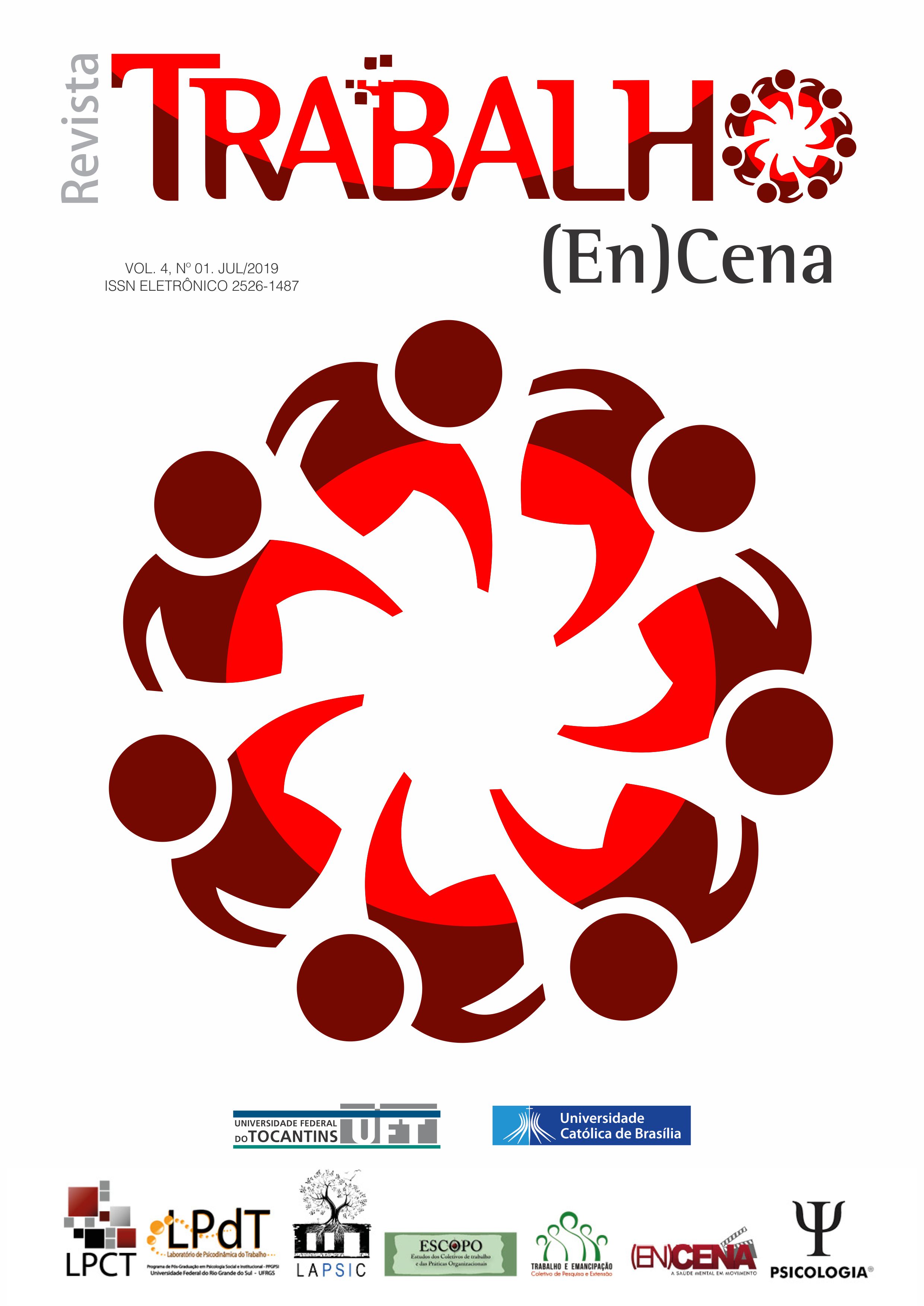Critical analysis of the film Two days, one night, by Luc Dardenne and Jean-Pierre Dardenne
Abstract
This review aims to expand the discussions and reflections about the importance of syndicates as collective spaces of struggle, through the analysis of the film Two Days, One Night, directed by Luc Dardenne and Jean-Pierre Dardenne, 2014. The feature film brings contemporary issues, relevant to the work world which, at its current stage, has favored individualism and competitiveness. In this scenario, the collective spaces end up being fragmented and weakened, making it difficult to fight for better working conditions. This is what the story of the protagonist, who is about to lose her job after a period of absence to treat depression, shows us. The capitalist factory model is portrayed in the film through the protagonist’s story and shows the factory’s intention to maintain production at a cost reduction, making the employer place the responsibility of deciding between keeping the worker or preserving their bonus to the workers themselves. In the plot, we identify current issues of the work world, such as illness, financial need, fear of unemployment and collective fragmentation, but, also, empathy and solidarity between workers, issues that we seek to critically discuss in this work.
Downloads
Published
How to Cite
Issue
Section
License
Os direitos autorais dos artigos publicados pela Revista Trabalho EnCena permanecem propriedade dos autores, que cedem o direito de primeira publicação à revista. Os autores devem reconhecer a revista em publicações posteriores do manuscrito. O conteúdo da Revista Trabalho EnCena está sob a Licença Creative Commons de publicação em Acesso Aberto. É de responsabilidade dos autores não ter a duplicação de publicação ou tradução de artigo já publicado em outro periódico ou como capítulo de livro. A Revista Trabalho EnCena não aceita submissões que estejam tramitando em outra Revista. A Revista Trabalho EnCena exige contribuições significativas na concepção e/ou desenvolvimento da pesquisa e/ou redação do manuscrito e obrigatoriamente na revisão e aprovação da versão final. Independente da contribuição, todos os autores são igualmente responsáveis pelo artigo.






